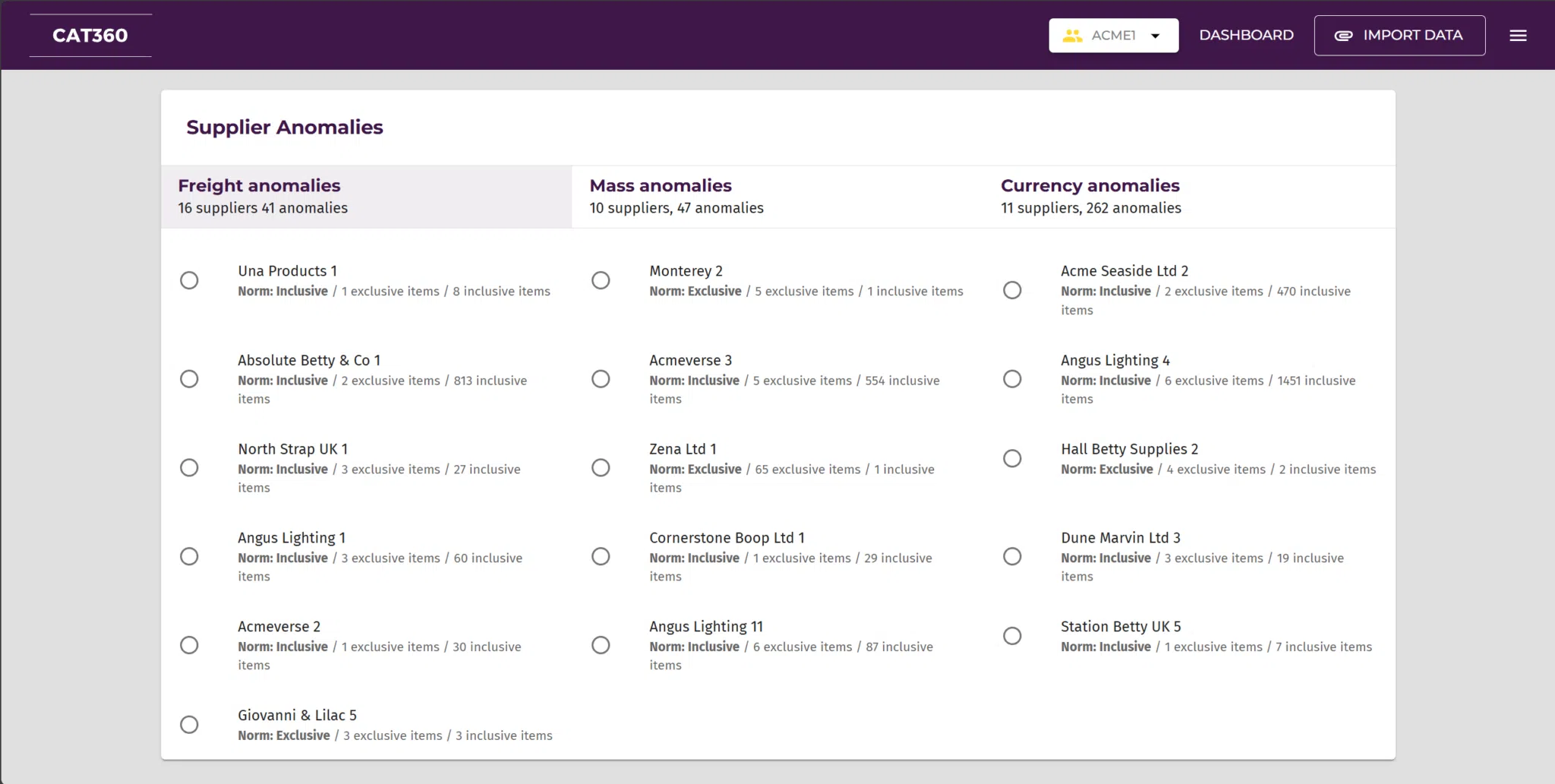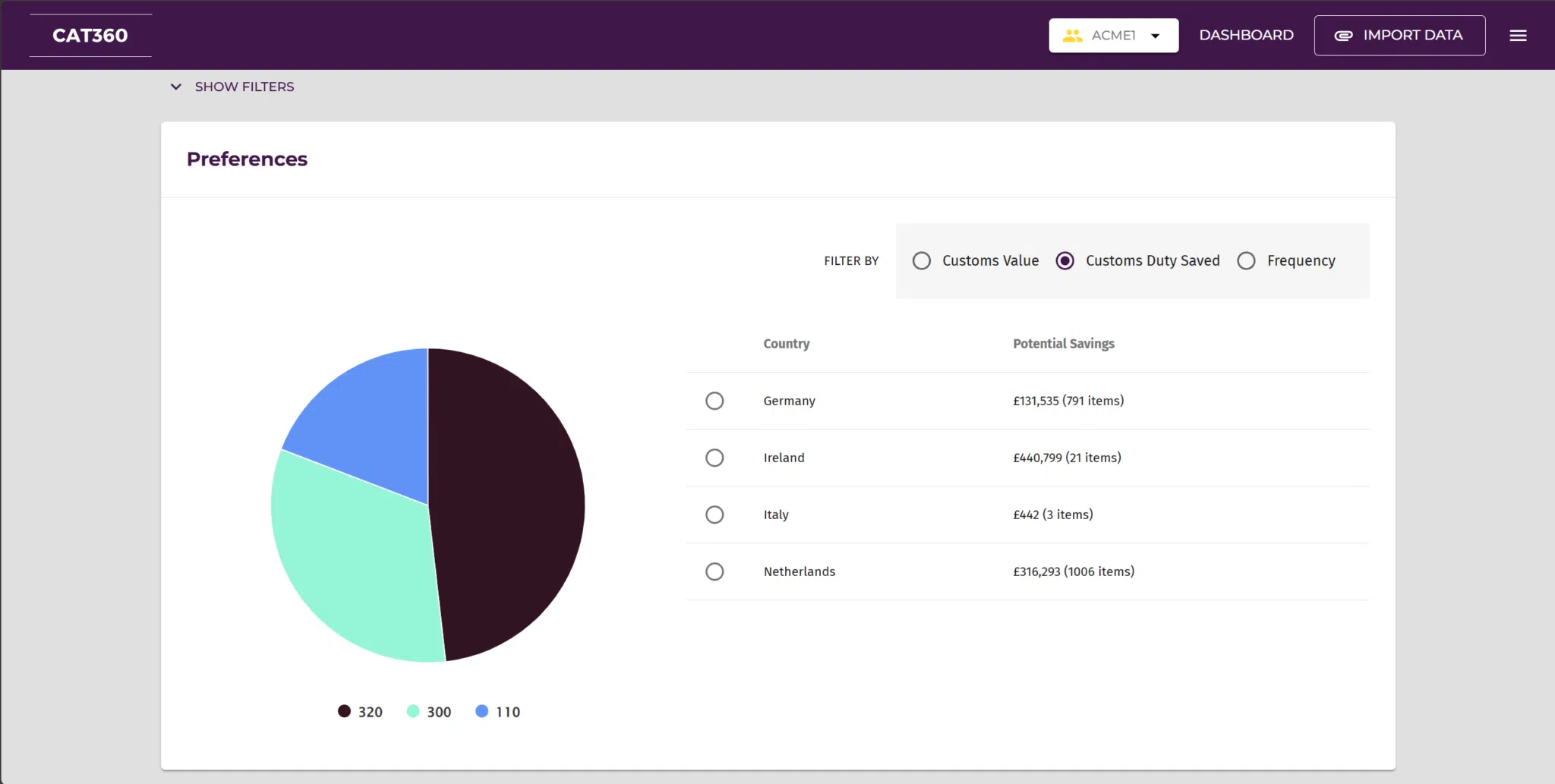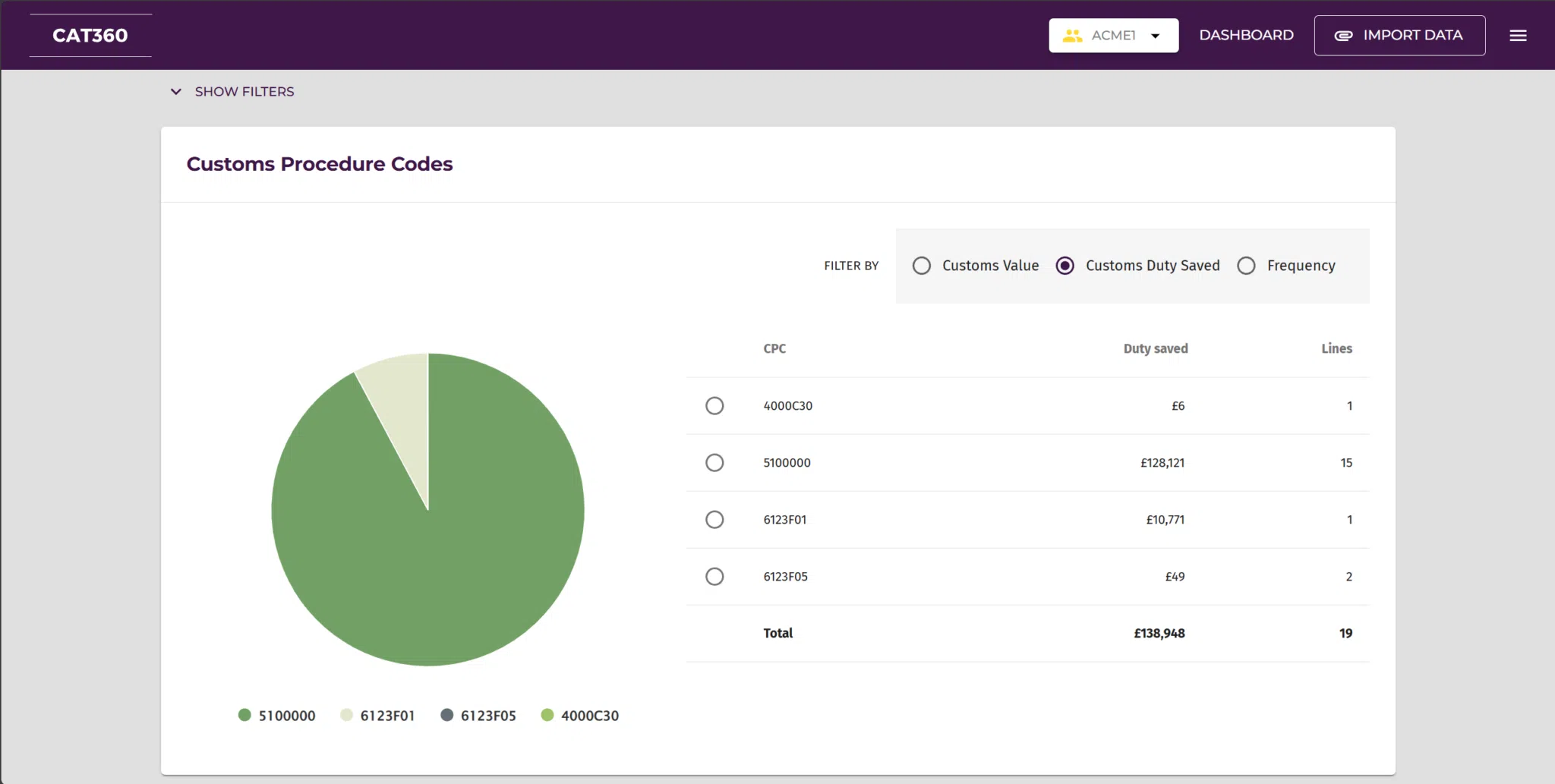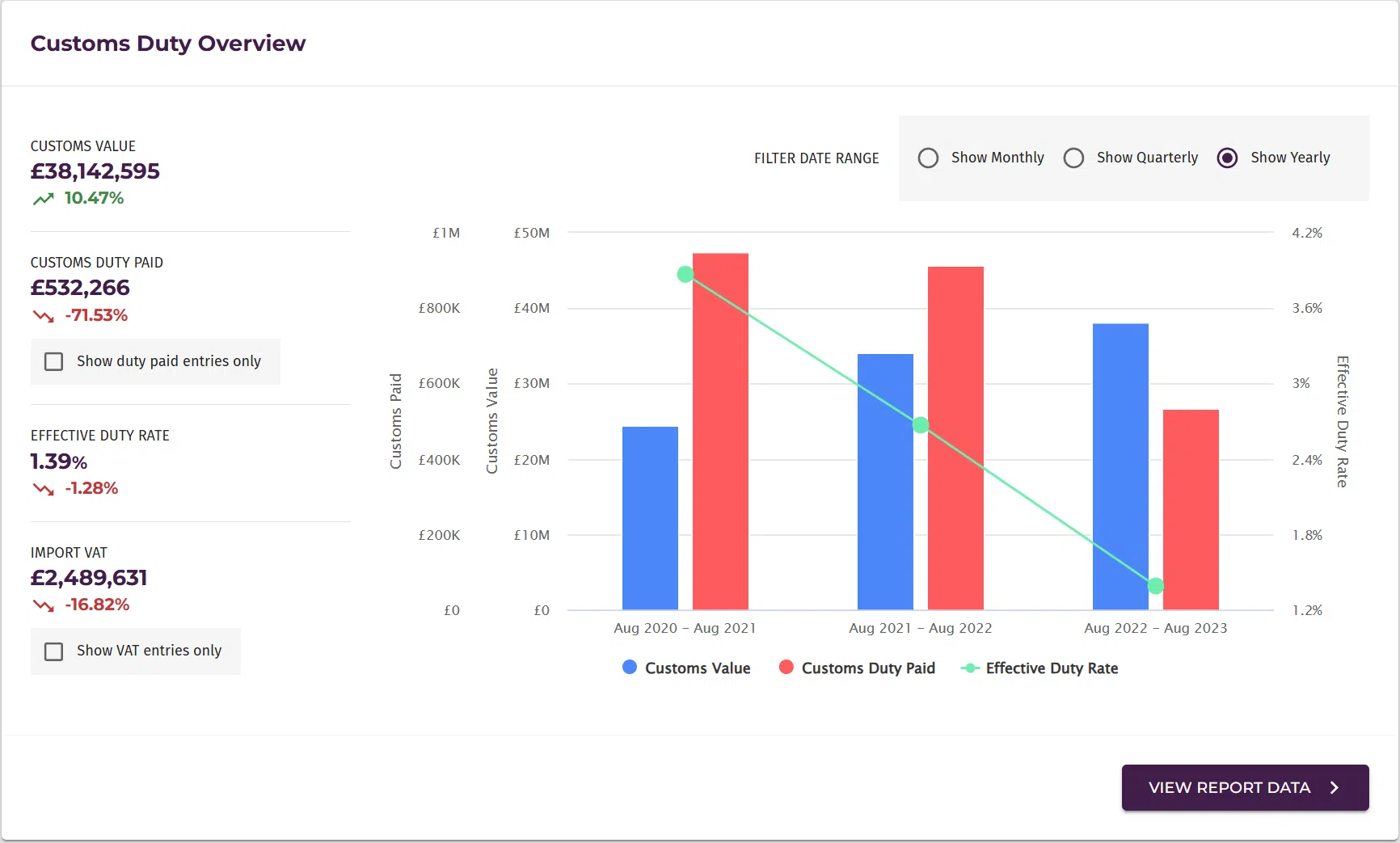34% of customs declarations contain errors
Did you know that over 1 in 3 customs declarations contain potential errors? Our analysis of 2.5 million declarations shows an average error rate of 34%.
For businesses trading internationally, these errors represent more than just statistics.
They translate into:
- Overpaid or underpaid duties eroding margins;
- Compliance risks leading to potential HMRC penalties;
- Supply chain inefficiencies that cut into margins.
The liability for these errors sits squarely with the customs debtor and declarant (often referred to as importer of record (IOR)), not the broker.
So, the question is: are your brokers doing a good job, and how would you know?
One of the most significant challenges businesses face is visibility. Without subscribing to CDS data, and without tools to make sense of it, many businesses are flying blind. CDS data will show you all the declarations made in your company’s name across all the brokers you use.
CDS data provides a detailed view of declarations made in your company’s name, but it’s often presented as a raw data dump. Interpreting without the right expertise, time, or resources is challenging.
Learn more: What is CDS data?
Accuracy of Declarations
Are the details in your customs declarations correct and consistent? Common errors include:
- Incorrect declared commodity codes;
- Incorrectly declared value;
- Incorrectly;
- Misapplied Incoterms;
- Incorrectly declared mass.
Why this matters: Errors like these can lead to immediate financial impacts, such as duty overpayments, and longer-term risks, such as penalties during HMRC audits.

Use of Preference
Are your brokers always claiming preference when they should?
Why this matters:
Barbourne Brook often sees significant sums of unclaimed preference, meaning duty is being paid when it did not need to be. This can be a hidden supply chain cost that drives down margins.

Customs Procedure Codes (CPC)
Are goods being declared under the right CPC code?
Why this matters:
Brokers might declare goods under reliefs like Inward Processing or Returned Goods Relief (RGR) to avoid duty payments. However, this often requires a detailed audit trail to link imports with exports, adding compliance burdens that may outweigh the benefits.

Trends
Are there common themes coming from the data?
Why this matters:
If you are uncovering consistent errors with specific suppliers or brokers, you can isolate them and implement change to prevent them from happening again. Sometimes, a simple fix can save significant duty leakage.

Ultimate Responsibility
Blaming the brokers for these errors is easy, but customs declarations are only as accurate as the data provided.
The importer is responsible for providing instructions on the use of classification, valuation, origin, and special procedures and checking that their instructions have been followed once the declaration is submitted. If businesses lack customs knowledge and robust, documented procedures—or if multiple departments manage customs independently—it’s no surprise that errors occur.
Brokers can only work with the information they receive. Small errors can compound over time without consistent processes and control, creating significant risk for the importer.
Without data-driven oversight, customs declarations remain a blind spot in supply chain management. By leveraging CAT360 analytics, businesses can:
- Identify broker errors before HMRC does
- Uncover duty savings and avoid unnecessary costs
- Ensure customs compliance without increasing administrative burden
- Your brokers’ performance directly impacts your bottom line. CAT360 ensures you stay in control.
Take Control of Your CDS Data
Barbourne Brook offers CAT360 analytical software, which turns your CDS data into meaningful, actionable insights. It can show you where errors occur and benchmark them against the brokers you use to make declarations.
Your brokers’ performance directly impacts your bottom line and compliance risks. Leveraging tools like CAT360 can unlock hidden value, reduce risk, and protect your business.
Talk To An Expert
Need help with customs compliance or looking to save on costs?
Share your contact details, and one of our experts will be in touch to assist!
Related Posts
15 April 2025
Protected: Product Recalls and Customs Duty: Hidden Costs, Missed Opportunities
In the food and beverage sector,…
8 April 2025
The Hidden Customs Risks That Could Derail Your M&A Deal
Why overlooked customs operations can…
3 April 2025
Liberation Day Tariffs: What UK Businesses Need to Know
The reintroduction of sweeping US…


